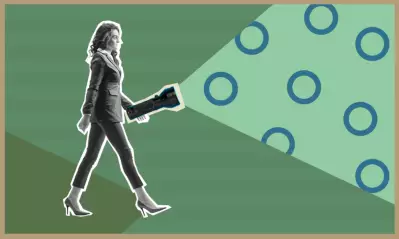Articles > Entrepreneurship > What is entrepreneurship?
What is entrepreneurship?

Written by Dillon Price

Reviewed by Kathryn Uhles, MIS, MSP, Dean, College of Business and IT

You’ve likely heard the term, but what is entrepreneurship exactly? Imagine spotting an unmet need, like a way to turn old photos into digital videos. Instead of waiting for a solution, you step up, create one and bring it to the market. That’s the essence of entrepreneurship.
If this resonates with you, read on to gain a more comprehensive understanding of the entrepreneurship skills and mindset you need to turn your ideas into a business.
The importance of entrepreneurship in today’s economy
When you sit down to answer the question “What is entrepreneurship?” you may discover it’s about launching bold ideas with vision and determination – and with a plan. Entrepreneurs typically seize opportunities and take calculated risks. They also invest their time, resources and energy into building solutions that add value to the market.
Entrepreneurs are also innovators who disrupt industries with bold ideas. Take Google™, for example. What began as a project by two Stanford students transformed into a global phenomenon that brought a wealth of information directly into people’s homes and, with the advent of smartphones, their hands.
What is entrepreneurship’s impact on job creation?
When successful, small businesses and startups can create a ripple effect that pushes others in the industry to keep up and innovate.
Entrepreneurs don’t just fuel creativity, though. They can also be job creators. As these businesses grow, they may offer people jobs and the chance to learn essential entrepreneurship skills.
Beyond that, new companies typically generate demand throughout their supply chains, which affects the economy and job market on multiple levels.
The entrepreneurial mindset
Entrepreneurs typically have certain traits that can help them overcome the challenges of building and growing a business. Resilience is likely at the top of this list: It’s a core trait that can help entrepreneurs keep going in the face of challenges.
Innovation is equally important, as successful entrepreneurs continually seek fresh ideas to differentiate their business.
Other important qualities include strong communication skills, which enable leaders to pitch their vision to investors, motivate team members and connect with customers, and adaptability, which lets entrepreneurs adjust their business strategies as markets shift. Financial skills come in handy for budgets, funding and smart financial decisions. Finally, self-motivation and discipline are vital for putting in the extra effort needed to turn a vision into reality.
How do entrepreneurs overcome challenges and embrace risk?
Starting a business comes with its fair share of challenges. One typical hurdle is getting adequate funding and managing cash flow. (More on that below!) Without consistent revenue in the early stages of your business, keeping the financial wheels turning can be challenging.
Standing out in a competitive market is another common challenge. Entrepreneurship requires you to carve out your unique spot while staying on top of trends to attract and retain customers.
Then there’s the stress of building a solid team and juggling countless responsibilities. Whether you’re handling daily operations or finding solutions to unexpected obstacles, you’ll likely have a lot on your plate. With the right strategies, however, these challenges can become stepping stones to long-term success.
You can overcome entrepreneurial challenges with due diligence, foundational knowledge and hard work. Before you commit to starting a business, do the research. Does a solution already exist? If not, what’s the closest thing that does? Have others tried and failed? Could you do it differently?
Asking the right questions, studying the processes and gaining a strong knowledge of finance and marketing will help position you to handle the entrepreneurial challenges that come your way. And when the going gets tough, don’t be afraid to seek support from mentors, peers and advisors who have been in your shoes. Sometimes, a different perspective can recalibrate your approach.
Types of entrepreneurship
What is entrepreneurship? It’s an umbrella term for a variety of business paths. Find out which one aligns best with your business vision.
Small-business entrepreneurship
Small businesses are known to be the heart of local communities and include everything from mom-and-pop shops to thriving restaurants.
Small-business entrepreneurs often strive for stability over expansion. Their goal isn’t to build a national chain but to serve their communities and make a living on their terms.
Scalable startups
Scalable startups start small but are built with big dreams. These ventures strive for rapid growth, are fueled by innovative ideas and rely on investor support.
Think of the tech startups we associate with Silicon Valley (e.g., Apple®). They’re good examples of companies that started small but are making a big impact in the world — and generating exponential returns along the way.
Intrapreneurship in business
Intrapreneurs bring an entrepreneurial spirit into established companies. Think of tech giants such as Google, where employees are encouraged to pursue new projects that can evolve into standalone businesses.
Intrapreneurs work within a larger organization to leverage its resources in development of new products or services. They have the creative freedom to innovate, without the full financial risk of launching a business on their own.
Social entrepreneurship
Some challenges require more than just a business solution; they need visionaries who want to drive social change. Social entrepreneurs focus on environmental sustainability, social justice and community development. They may create nonprofits, initiatives or community-focused businesses where one of the primary goals is positive impact.
For example, there is a popular ice cream brand that offers a version of social entrepreneurship. The company used its ice cream brand and profits to support human rights and social and economic justice and to protect the planet.
Technology-driven entrepreneurship
Technology-driven entrepreneurship combines an entrepreneurial spirit with technological innovation. Using scientific knowledge, this approach focuses on creating advanced models, processes and systems that drive growth and streamline operations.
Starting a business
Embracing the mindset of an entrepreneur is just the beginning. Now, it’s time to turn that drive into action. Here are tips on how to start a business .
Do your market research
Before starting a business, research consumer insights and economic trends to identify your advantage. Examine competitors’ strengths, weaknesses, market share and barriers to entry.
Then, gather demographic data, including age, income, location and interests of your target market. This helps you understand demand, market size and key economic factors. Also, assess market saturation and competitor pricing to define your unique position. Consider conducting surveys and interviews for direct audience feedback.
Create a business plan
A solid business plan is key to launching and growing your business. It can provide a guide to your business structure, so you can manage and scale it effectively. It can also attract investors or partners by showcasing your vision and making a strong case for support.
The traditional format covers each detail in depth and may span multiple pages, while the lean startup format may distill the key aspects to just one page.
Choose a business structure
Your business structure influences taxes, fundraising, liability and paperwork. Before registering, choose the best fit. A sole proprietorship, partnership, LLC or corporation each has distinct advantages and drawbacks.
For example, sole proprietorships and partnerships are typically simple and good for testing ideas, while LLCs can offer asset protection and tax flexibility. Corporations provide the highest liability protection and growth potential but require more compliance and face double taxation.
Fund your business
To fund your business, first determine how much capital you’ll need. Then, consider the following options:
- Self-funding gives you control but comes with personal financial risk.
- Venture capital can accelerate growth, but it usually requires sharing control.
- Crowdfunding raises funds from a broad audience without giving up equity, which makes it appealing for creative projects or product launches.
- Small-business loans offer funding while allowing you to retain ownership.
Each of these options requires careful research and risk analysis before commitment. Be sure to invest time to fully understand the implications of your preferred funding method and consider consulting with a tax or financial professional.
Build a meaningful brand
Today, brand is a business buzzword, but its real power goes beyond a logo. Your brand reflects your mission, values, voice and image. Building a strong brand means clearly defining who you are and why you exist. Keep your message consistent and encourage your team to represent it authentically.
Set up your business
To register your business, first determine your location and structure. Most small businesses need to submit their business name to state and local authorities.
For compliance, you’ll likely need federal and state tax IDs, plus any necessary licenses or permits based on your industry and location. Larger businesses or those operating in multiple states may need to file for foreign qualification, while nonprofits and corporations may require additional forms or filings.
Understand legal and regulatory challenges
When embarking on your entrepreneurial journey, you should gain an understanding of business law to protect yourself from legal and regulatory challenges. For starters, consider researching laws on business formation, contracts, employment statutes and tax compliance.
Consider working with a knowledgeable business law attorney who can make recommendations to help protect you and your personal assets as well as help you stay informed and legally compliant.
What is entrepreneurship to you?
If you’ve answered “What is entrepreneurship?” in a way that has you excited to learn more, University of Phoenix is ready to help.
Explore business courses and find out how they equip you with real-world entrepreneurial skills like business development, market analysis and capital management..
Programs at UOPX include:
Request information to learn more about completing an entrepreneurship program at UOPX.
Google is a registered trademark of Google LLC.
Apple is a registered trademark of Apple Inc., registered in the U.S. and other countries

ABOUT THE AUTHOR
Dillon Price is a detail-oriented writer with a background in legal and career-focused content. He has written and edited blogs for dozens of law firms, as well as Law.com. Additionally, he wrote numerous career advice articles for Monster.com during the company’s recent rebranding. Dillon lives in Western Massachusetts and stays in Portugal each summer with his family.

ABOUT THE REVIEWER
Currently Dean of the College of Business and Information Technology, Kathryn Uhles has served University of Phoenix in a variety of roles since 2006. Prior to joining University of Phoenix, Kathryn taught fifth grade to underprivileged youth in Phoenix.
This article has been vetted by University of Phoenix's editorial advisory committee.
Read more about our editorial process.


